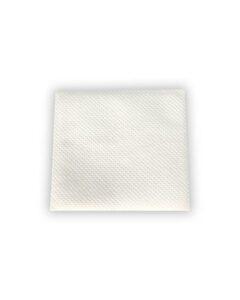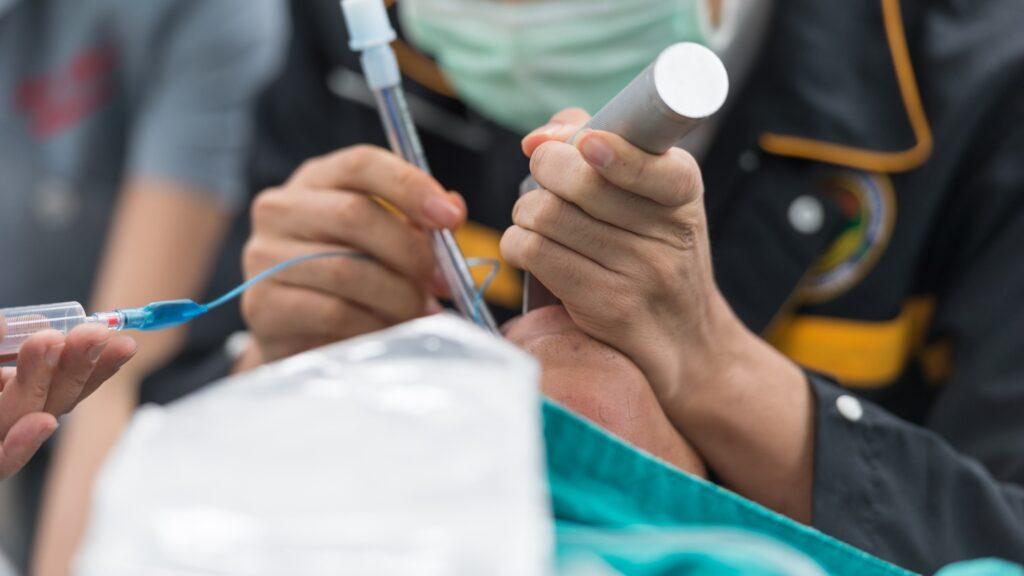In the realm of medical advancements and research, maintaining a clean and sterile environment is paramount to the successful growth and development of sensitive organisms. One vital component in achieving this is the implementation of efficient incubator filters. These powerful filters play a crucial role in enhancing air quality, preventing contamination, and ensuring the overall success of incubation processes. In this blog, we delve into the world of incubator filters, exploring their types, functions, maintenance best practices, and troubleshooting techniques. Discover the latest advancements in incubator filters through Medzell‘s insightful blog, exploring how these innovative technologies revolutionize sterile environments for optimal growth and development in the medical industry. Join us as we unravel the secrets to creating the perfect environment for medical incubation.
Understanding Different Types of Incubator Filters
When it comes to incubator filters, there are various types that cater to specific filtration needs. The different types each have their importance in maintaining a clean and sterile environment for optimal growth and development of sensitive organisms in the medical industry.
- High-Efficiency Particulate Air (HEPA) filters : Exceptional filtration capabilities, trapping microscopic particles and enhancing air quality within incubators.
- Carbon filters: Eliminate odors and chemical contaminants, maintaining a controlled and odor-free environment for incubation.
- Microbial filters: Act as protective barriers against harmful microorganisms, preventing contamination and ensuring a sterile environment within incubators.
- UV filters: Utilize ultraviolet light to eliminate pathogens and microorganisms, enhancing the overall sterility of the incubator environment.
- Electrostatic filters: Capture airborne particles through electrostatic attraction, effectively reducing contaminants in the incubator.
- Activated carbon filters: Absorb and remove volatile organic compounds (VOCs) and odorous substances from the air, promoting a clean and fresh incubator environment.
- Pre-filters: Capture larger particles and debris before they reach the main filter, improving the overall lifespan and efficiency of the incubator filtration system.
- Combination filters: Incorporate multiple filtration mechanisms, such as HEPA and carbon, to provide comprehensive purification for incubator air quality.
- Antimicrobial filters: Infused with antimicrobial agents, these filters actively inhibit the growth of bacteria and fungi, ensuring a hygienic incubation environment.
- Electrostatic precipitators: Use an electrostatic charge to capture and remove particulate matter from the air, maintaining a clean and particle-free incubator atmosphere.
How HEPA Filters Improve Incubator Air Quality
HEPA filters, known for their exceptional filtration capabilities, have revolutionized air quality in incubators. These filters trap microscopic particles, prevent their circulation, and create a safe and healthy environment for delicate specimens. HEPA (High-Efficiency Particulate Air) filters play a crucial role in improving incubator air quality. These filters are designed to capture and trap microscopic particles. By effectively removing these contaminants from the air, HEPA filters create a cleaner and healthier environment within the incubator. This is particularly important for delicate organisms and sensitive specimens that require a sterile and uncontaminated setting to thrive. HEPA filters ensure that the air circulating within the incubator is free from harmful particles, reducing the risk of contamination. With their exceptional filtration capabilities, HEPA filters contribute significantly to the success of incubation processes in the medical industry.
The Role of Carbon Filters in Incubators
Carbon filters play a crucial role in maintaining a controlled and odor-free environment within incubators. Uncover the ability of carbon filters to remove odors and chemical contaminants, ensuring optimal conditions for the growth and development of organisms. Carbon filters play a vital role in incubators by effectively removing odors and chemical contaminants from the air. Incubators often encounter various odorous substances, such as volatile organic compounds, gases, and unpleasant smells, which can impact the environment and compromise the growth and development of sensitive organisms. Carbon filters, composed of activated carbon, have excellent adsorption properties that capture and absorb these odorous molecules, neutralizing them and improving the overall air quality within the incubator. By maintaining a controlled and odor-free environment, carbon filters create a more favorable condition for organisms to thrive. Their ability to eliminate odors and chemical contaminants contributes to the success of incubation processes and ensures the creation of a conducive atmosphere for the delicate specimens in the medical industry.
Safeguarding Incubators with Microbial Filters
Microbial filters act as a protective barrier against harmful microorganisms, safeguarding incubators and preventing contamination. These filters ensure a sterile environment within incubators. Microbial filters are essential for safeguarding incubators in the medical industry. These filters act as protective barriers against harmful microorganisms, preventing contamination and ensuring a sterile environment within the incubator. By effectively trapping and blocking bacteria, viruses, and other pathogens, microbial filters help maintain the integrity of delicate specimens and protect them from external contamination sources. With their high filtration efficiency, these filters provide an added layer of security. Safeguarding incubators with microbial filters is crucial to ensure the successful cultivation and development of sensitive organisms, making them indispensable components in the field of medical incubation.
Best Practices for Cleaning and Maintaining Incubators
Proper cleaning and maintenance protocols are essential for the longevity and optimal functioning of incubators. In this section, explore effective techniques and practices to create a sterile and conducive environment for successful incubation. Master the art of maintaining cleanliness and preventing the risk of contamination in your incubator setup.
- Regular cleaning: Develop a cleaning schedule to remove dust, debris, and contaminants from the interior and exterior surfaces of the incubator.
- Disinfection: Use appropriate disinfectants recommended for incubators to eliminate bacteria, viruses, and other pathogens. Follow manufacturer guidelines for dilution and contact time.
- Filter maintenance: Clean or replace filters as recommended by the manufacturer to maintain optimal air quality and prevent the buildup of contaminants.
- Temperature calibration: Regularly calibrate and monitor the temperature accuracy of the incubator to ensure precise and consistent temperature control.
- Humidity control: Monitor and maintain appropriate humidity levels within the incubator to create a conducive environment for organism growth.
- Inspection and maintenance: Regularly inspect and maintain components such as seals, and gaskets.
By following these best practices, you can promote a clean, sterile, and efficient environment within incubators, ultimately supporting successful incubation processes in the medical industry.
The Importance of Regular Incubator Filter Replacement
Timely replacement of incubator filters is crucial for maintaining optimal air quality and preventing the accumulation of contaminants. Regular filter replacement has an impact on the successful operation of incubators. Regular incubator filter replacement is of utmost importance for maintaining optimal air quality and ensuring the integrity of incubation processes. Over time, filters become clogged with dust, debris, and contaminants, reducing their efficiency and compromising their ability to trap harmful particles. By replacing filters at recommended intervals, the air circulation within the incubator remains clean and free from contaminants, providing a sterile environment for sensitive organisms. Timely filter replacement also helps prevent the accumulation of allergens and pathogens, reducing the risk of contamination and maintaining the health and viability of specimens. Additionally, proper filter replacement contributes to the longevity of the incubator itself, ensuring its continued functionality and reliable performance in the medical industry.
Ensuring Longevity of Incubator Filters
Maximizing the lifespan of incubator filters can significantly reduce costs and ensure consistent performance. Ensuring the longevity of incubator filters is crucial for maintaining their effectiveness and optimizing their lifespan. The steps to be followed are given below.
- Regular inspection: Routinely inspect filters for signs of wear, damage, or clogging. Replace filters promptly when they show signs of deterioration.
- Proper handling: Handle filters with care to prevent damage during installation and removal. Follow manufacturer guidelines for handling and maintenance.
- Adequate maintenance: Keep the incubator clean and free from dust and debris that can prematurely clog filters. Regularly clean the incubator and surrounding area.
- Filter monitoring: Monitor the airflow and pressure differentials to assess filter performance. Address any significant changes promptly.
- Timely replacement: Adhere to the recommended filter replacement schedule provided by the manufacturer to maintain optimal filtration efficiency.
By implementing these practices, you can extend the lifespan of incubator filters, ensuring their continued effectiveness in providing a clean and sterile environment for successful incubation in the medical industry.
Troubleshooting Common Incubator Filter Problems
Incubator filters may encounter common issues that can disrupt their performance. Troubleshooting common incubator filter problems is essential for uninterrupted and efficient incubator performance. Some common issues and solutions are given below.
- Reduced airflow: Check for clogged filters or blocked vents and clean or replace filters accordingly. Ensure proper airflow by maintaining a clear and unobstructed pathway.
- Filter damage: Inspect filters for tears, holes, or damage. If damaged, replace them promptly to maintain optimal filtration efficiency.
- Uneven filtration: Verify that filters are installed correctly and securely. Ensure a proper seal to prevent air bypass and ensure uniform filtration.
- Filter saturation: If filters become saturated with contaminants or moisture, replace them to maintain a clean and sterile environment.
- Incorrect filter selection: Verify that the filters being used are appropriate for the specific incubator model and intended purpose.
By troubleshooting and addressing these common filter problems, you can maintain a functional and reliable incubator system, promoting successful incubation processes in the medical industry.
Preventing Contamination in Incubators
Contamination poses a significant risk in incubators and can compromise delicate specimens. It is very important to follow proper filter maintenance, cleaning protocols, and adherence to sterile practices to safeguard your valuable incubation projects.
Preventing contamination in incubators is paramount for maintaining a sterile environment and safeguarding the integrity of sensitive specimens. A comprehensive approach includes strict adherence to cleanliness protocols, implementing rigorous disinfection practices, and proper handling techniques. Controlled access to the incubator area and limiting exposure to external contaminants is vital. Regular maintenance and inspections help identify and address potential sources of contamination, such as damaged seals or filters. Additionally, providing comprehensive training to laboratory staff on sterile practices and protocols ensures a consistent and vigilant approach towards contamination prevention. By implementing these preventive measures, incubators can create a controlled and contaminant-free environment, promoting successful incubation processes in the medical industry.
Eliminating Unpleasant Odors in Incubators
Unpleasant odors can arise within incubators and affect the overall environment. Explore the sources of these odors and effective methods to control and eliminate them. Discover specialized filters and techniques designed to maintain a fresh, odor-free environment within incubators, promoting an ideal setting for growth and development.
Eliminating unpleasant odors in incubators is essential for creating a favorable environment for the growth and development of delicate specimens. Here are some effective methods to tackle odors.
- Carbon filters: Incorporate activated carbon filters to absorb and neutralize odorous molecules, ensuring a fresh and odor-free incubator environment.
- Regular cleaning: Implement thorough cleaning routines to remove any organic matter or debris that may contribute to unpleasant odors.
- Proper ventilation: Ensure adequate airflow within the incubator to prevent the buildup of stagnant air and promote air circulation.
- Odor control agents: Utilize specialized odor control agents or air fresheners designed for use in incubators to neutralize and mask unpleasant smells.
- Maintenance and filter replacement: Regularly maintain and replace filters to prevent the accumulation of odorous particles and maintain optimal air quality.
By employing these strategies, incubators can maintain a pleasant and odor-free atmosphere, supporting successful cultivation and development in the medical industry.
Incubator Filters from Leading Indian Manufacturer
Incubator Filter
 Nice Neotech Medical Systems Pvt. Ltd. introduces their high-quality Incubator Filter, designed to enhance the air quality and safety of incubators and transport incubators. This filter is manufactured with non-woven material, meticulously engineered to trap and hold contaminants that could potentially affect the health of patients.
Nice Neotech Medical Systems Pvt. Ltd. introduces their high-quality Incubator Filter, designed to enhance the air quality and safety of incubators and transport incubators. This filter is manufactured with non-woven material, meticulously engineered to trap and hold contaminants that could potentially affect the health of patients.
Regular maintenance and routine checking of the Incubator Filter play a crucial role in maintaining a clean and uncontaminated air supply within the incubator. By keeping the filter clean and free from dirt and debris, healthcare professionals can ensure a healthy and sterile environment for the patients.
Nice Neotech’s Incubator Filter is a reliable and indispensable component for incubators, providing efficient filtration to safeguard the well-being of patients. With its exceptional quality and performance, this filter is a vital asset in medical facilities, promoting optimal growth conditions and supporting successful incubation processes. Trust in Nice Neotech’s Incubator Filter to deliver superior air quality and contribute to the overall safety and effectiveness of incubators.
Medzell: Pioneering Indian Medical Devices for Emerging Markets
Medzell is a pioneering B2B platform dedicated to promoting Indian medical devices in emerging markets. With its futuristic approach, Medzell aims to bridge the gap between manufacturers and buyers by providing a comprehensive marketplace for high-quality medical devices. By showcasing the innovative and reliable products of Indian manufacturers, Medzell facilitates access to cutting-edge healthcare technology for healthcare providers and distributors in emerging markets. The platform offers a diverse range of medical devices. Medzell’s commitment to quality, affordability, and customer satisfaction positions it as a trusted partner for the procurement of Indian medical devices, contributing to the advancement of healthcare services in emerging markets.
conclusion
To conclusion, incubator filters are indispensable components that safeguard both patients and medical processes. By meticulously purifying the air and maintaining a contaminant-free environment, these filters prevent potential health risks and support the integrity of sensitive medical procedures. Their integration into healthcare settings underscores their pivotal role in upholding safety, precision, and overall patient well-being within medical incubation contexts.


